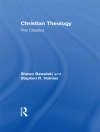Since 1997, FORUM is an integral part of the journal landscape of European Studies. In addition to facts of contemporary history, it offers deep insights into the history of ideas, reflects current discussions, and provides reviews of books on Central and Eastern European history. Especially on the history of ideas and contemporary history it offers more than ›just‹ history-e.g. interdisciplinary discussions by political scientists, literary, legal, and economic scholars and philosophers. FORUM sees itself as a bridge between East and West. Through the translation and publication of documents and contributions from Russian, Polish, and Czech researchers it offers the Western reader insight into the scientific discourse within Eastern Europe. In his classic book on the history of Russian philosophy, Vasilij Zenkovskij singled out Simon Frank (1877-1950) as the most influential Russian philosopher of all times. Frank´s oeuvre is informed by two main sources: Russian-Orthodox spirituality on the one hand and Western, mainly German, philosophical traditions on the other. To honor Frank´s impact and significance, the Institute for Central and Eastern European Studies (ZIMOS) decided to translate his most important writings into German in 1996. 17 years later, an edition of eight volumes had been completed, which served as the occasion for a symposium on Frank`s work. This issue of Forum collects the research presented during that symposium.
Über den Autor
Andreas Umland, M.Phil. (Oxford), Dr.Phil. (FU Berlin), Ph.D. (Cambridge), Research Fellow at the Swedish Institute of International Affairs in Stockholm, Senior Expert at the Ukrainian Institute for the Future in Kyiv, and Associate Professor at the National University of Kyiv-Mohyla Academy.












